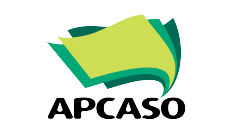The Asia Pacific Community, Rights and Gender Communication and Coordination Platform (APCRG) 2019 Partners Meeting was held in Bangkok, Thailand on 18-19 June 2019. Hosted by APCASO, APCRG is an initiative of the Global Fund Community, Rights and Gender Strategic Initiative (CRG SI).
Over 40 participants from 12 countries around the region, representing national and regional HIV, TB and malaria key populations and civil society (CS) networks and organisations took part in the meeting. The participants ranged from Global Fund principle recipient (PR), sub and sub-sub recipient (SR and SSR), Vice-Chair and key populations (KP) and CS representative to the Country Coordinating Mechanism (CCM), and Global Fund CRG technical assistance provider. The meeting was also joined by key technical partners, including representatives from the UNAIDS Regional Support Team (RST) and its Technical Support Mechanism (TSM) Programme.
The meeting was structured around the theme of Community-led Strategies for Overcoming Global Fund Grant Implementation Bottlenecks, and included the objectives of:
- To identify and understand Global Fund implementation bottlenecks experienced and observed by community and civil society in the region;
- To put forward solutions and good practices, with a particular focus on the opportunities presented, for addressing and mitigating the impacts of the identified bottlenecks; and
- To share critical Global Fund-related information, including information on the CRG Technical Assistance (TA) Program and facilitate discussions on the role of APCRG in contributing to the building of a sustainable and resilient community-led response for health.
Participants shared and identified the breadth of implementation bottlenecks in the region and its immediate and less immediate causes. Throughout the discussions in a number of sessions, participants discussed bottlenecks that can be identified through the various layers of Global Fund grant implementation at the various stages of the Global Fund cycle (i.e. from concept note development to monitoring & evaluation).
At the same time, by identifying the scale of each implementation bottleneck as well as its projected outcomes, participants were able to understand the magnitude of the issue, its interconnectedness with other issues around Global Fund implementation, and whether they have to do with a lack of adequate channels of communication, fragmentation of grant implementation or disregard for the expertise and capacity of communities and their representatives. The participants further explored a range of solutions, both short-term with a more systematic recourse to available technical assistance programmes, and longer-term with the sharing of best practices for maximum engagement during the next funding cycle.
APCRG will take the outputs and learning from the two-day meeting and develop a framework that would recommend how Global Fund implementation bottlenecks will and can be addressed at various levels and stages of the implementation for the future of grant cycles. APCRG will also follow up with partners on some of the possible technical assistance support requests that transpired at the meeting.

